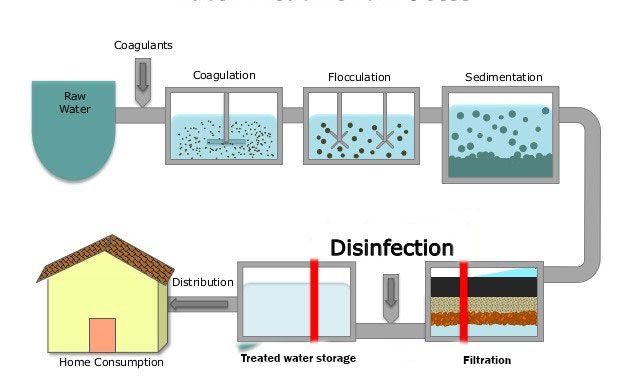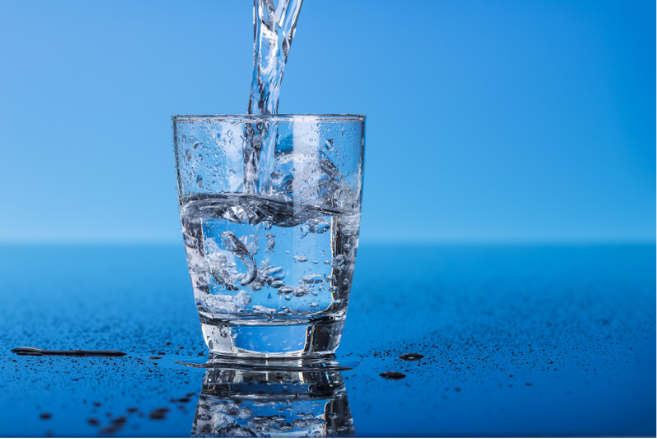Why a Water Purification System Is Essential for Tidy, Safe Water
Accessibility to clean, safe water is an essential human right and a foundation of public wellness. A water filtration system stands as a vital solution to minimize these threats, making sure that people and neighborhoods can access safe alcohol consumption water.
Importance of Tidy Water
Accessibility to tidy water is a basic requirement for human health and health. It is vital for maintaining life, sustaining hygiene, and preserving overall public health. Water Purification System. The accessibility of safe alcohol consumption water considerably lowers the threat of waterborne illness, which position a substantial threat to communities worldwide. Infected water can cause serious wellness problems, including stomach ailments, cholera, and dysentery, especially in vulnerable populations such as youngsters and the senior.
Furthermore, clean water is important for cleanliness and hygiene practices, which are vital in protecting against the spread of transmittable conditions. Ample water system supports appropriate hygiene centers, promoting a much healthier environment. Furthermore, accessibility to secure water influences socioeconomic aspects, as it allows communities to take part in farming and industrial tasks, eventually adding to economic growth.
In many regions, the absence of tidy water intensifies destitution and inequality, more hindering progression toward lasting advancement goals. Making certain accessibility to clean water is not just a public wellness vital but also a foundation for social equity and economic growth. Efforts to enhance water quality and facilities have significant benefits, fostering healthier communities and enhancing lifestyle.

Typical Pollutants in Water
Guaranteeing the schedule of tidy water is threatened by numerous contaminants that can compromise its security and quality. The existence of virus, such as viruses, bacteria, and bloodsuckers, presents considerable health and wellness threats, particularly in locations lacking sufficient hygiene. These microbes can result in waterborne conditions, causing extreme disease and even fatality.
Chemical pollutants also present a crucial concern. Heavy metals, including mercury, arsenic, and lead, commonly get in water supplies through commercial discharges or rusty plumbing. These compounds can accumulate in the body over time, leading to long-term health and wellness issues such as neurological damage and developing problems.
Furthermore, agricultural drainage presents pesticides and plant foods right into water supply, which can interfere with ecological communities and adversely impact human wellness. Nitrates, typically located in fertilizers, can cause significant problems like methemoglobinemia, specifically in babies.
Advantages of Water Purification Equipments
Recognizing the essential requirement for safe drinking water, water filtration systems use a myriad of benefits that enhance public wellness and ecological sustainability. Mostly, these systems properly get rid of hazardous contaminants, including germs, viruses, hefty metals, and chemicals, ensuring that the water consumed is devoid of pollutants and virus. This reduction in contaminants dramatically decreases the risk of waterborne conditions, advertising overall neighborhood wellness.
In addition to health and wellness benefits, water purification systems add to environmental sustainability by minimizing dependence on bottled water, which frequently produces excessive plastic waste. By utilizing a purification system, homes can decrease their carbon footprint and add to a much more sustainable environment. Moreover, these systems can improve the preference and smell of water, making it much more palatable for daily intake.

Various Types of Purification Techniques

One usual technique is reverse osmosis, which makes use of a semi-permeable membrane to separate water from liquified solids and impurities. This process successfully decreases contaminations, including hefty steels and chemicals. Another widely utilized method is ultraviolet (UV) disinfection, which utilizes UV light to reduce the effects of viruses and germs, providing them safe without the use of chemicals.
Turned on carbon purification is one more popular approach, making use of carbon to adsorb organic substances, chlorine, and undesirable odors, enhancing preference web and odor high quality. Distillation, a process that entails boiling water and condensing the heavy steam, properly eliminates minerals and contaminants but may call for even more energy compared to other techniques.
Ion exchange is usually used to soften water by replacing calcium and magnesium ions with salt or potassium ions. Each technique has its restrictions and advantages, making it important to comprehend their performances and efficiency in addressing particular water quality issues - Water Purification System. Ultimately, selecting the appropriate filtration technique is essential for guaranteeing secure and tidy drinking water
Selecting the Right System
Choosing a proper water filtration system calls for careful factor to consider of numerous aspects, consisting of the certain contaminants existing in the water supply, the quantity of water needed, and the desired filtration approach. It is important to conduct a water quality test to determine impurities such as microorganisms, hefty metals, or chemical toxins. This information will guide you in choosing a system that properly targets those details impurities.
Next, assess your house's day-to-day water consumption to figure out the system's capability. Solutions are available in numerous dimensions, from point-of-use filters for alcohol consumption water to whole-house systems that detoxify all water entering your home.
In addition, think about the filtration technique that finest fits your demands. For circumstances, reverse osmosis is very efficient for eliminating a variety of pollutants, while UV filtration is outstanding for eliminating microbes.
Final Thought
Finally, the execution of water purification systems is vital for guaranteeing access to secure and tidy water. These systems successfully eliminate hazardous contaminants, thereby decreasing the danger of waterborne diseases and enhancing public health. They contribute to ecological sustainability by decreasing reliance on bottled water. By recognizing the value of clean water and the benefits of numerous filtration approaches, areas can make informed decisions to safeguard their wellness and advertise socioeconomic stability.
Acknowledging the crucial need for risk-free drinking water, water purification systems provide a myriad of advantages that boost public wellness and environmental sustainability.In look what i found addition to wellness benefits, water filtration systems contribute to ecological sustainability by minimizing dependence on bottled water, which frequently creates too much plastic waste. Eventually, the fostering of water filtration systems is a proactive action towards making certain clean, safe water for future generations while guarding public health and the setting.
Picking an appropriate water purification system requires careful consideration of various elements, including the specific contaminants present in the water supply, the quantity of water required, and the wanted filtration technique.In conclusion, the execution of water purification systems is important her explanation for making certain accessibility to risk-free and clean water.